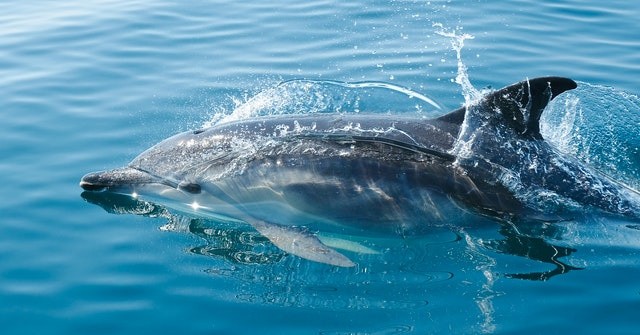Research printed in Environmental Toxicology and Chemistry has found out that the 2010 Deepwater Horizon oil spill in the northern Gulf of Mexico has long-term impacts on the immune function of bottlenose dolphins. As part of health assessment programs, bottlenose dolphins from a place that received lengthened and heavy oiling were temporarily captured, tested, and freed. The animals were compared with dolphins from a geographical area where no oil was seen.

Immunological Alterations
Researchers recorded immunological alterations in bottlenose dolphins sampled up to a decade as a result of the oil spill that was similar in nature to those immediately following the spill. The impacts were seen even in dolphins given birth after the spill. The nature of the immunological impacts examined in dolphins was also related to those in mice analytically exposed to oil in the laboratory.
The studies advocate that there are long-term aftermaths of oil exposure on the mammalian immune system, with likely multi-generational impacts. The corresponding author of the University of Connecticut, Sylvain De Guise, Ph.D., said "The correlation between findings in dolphins exposed as a result of the Deepwater Horizon spill and laboratory mice tentatively exposed to oil was remarkable and absolutely assisted in building the weight of evidence between oil exposure and specific impacts on the immune system. However, the everlasting effects and capability for multigenerational effects raise notable concerns for the recovery of dolphin populations following the spill."
ALSO READ: A New Environmentally Friendly Oil Spill Cleanup Method Discovered
Health Assessment Conducted
Health assessments were conducted in Barataria Bay on bottlenose dolphins in Louisiana, USA, from 2011 to 2018, with a view to assess potential health effects as a result of the Deepwater Horizon oil spill, measured up to the unoiled Bay in Sarasota, Florida, USA, reference dolphin populace.
We earlier reported significant rises in T‐lymphocyte proliferation, along with lower T helper 1 (Th1) cytokines, and higher Th2 cytokine IL‐4, and also lower T regulatory (Treg) cytokine IL‐10 in Bay of Barataria in 2011 compared to Bay of Sarasota, persistent with Deepwater Horizon oil exposure.
Notwithstanding, values between 2013 and 2016 were more related to those noticed in Sarasota Bay, T‐cell proliferation was again exalted and cytokine balance shifted toward Th2 in Barataria Bay during 2017-2018. In 2018, dolphins in Barataria Bay had significantly more disseminating Treg cells than dolphins in Sarasota Bay.

T‐lymphocyte Proliferation
Mice analytically exposed to oil also had significantly raised T‐lymphocyte proliferation and disseminating Treg cell number, which includes effects in their unexposed progeny. In vitro stimulation led to greater Th2 responsiveness in Barataria Bay when matched to Sarasota Bay dolphins, and in vitro oil exposure of Sarasota Bay dolphin cells also led to enhanced Th2 responsiveness.
Evidence points towards Treg cells as a potential target for the immunomodulatory effects of oil exposure. The immunological trends noticed the Bay of Barataria showed exaggerated in dolphins given birth to after the spill, recommending the possibility of continued oil exposure or multigenerational health outcomes of exposure to oil, as noticed in mice.
RELATED ARTICLES : 6,000 Gallons of Oily Water Recovered, Louisiana Pipe Leak Continues
For more news, update, similar topics about dolphins do't forget to follow Nature World News!
© 2025 NatureWorldNews.com All rights reserved. Do not reproduce without permission.





